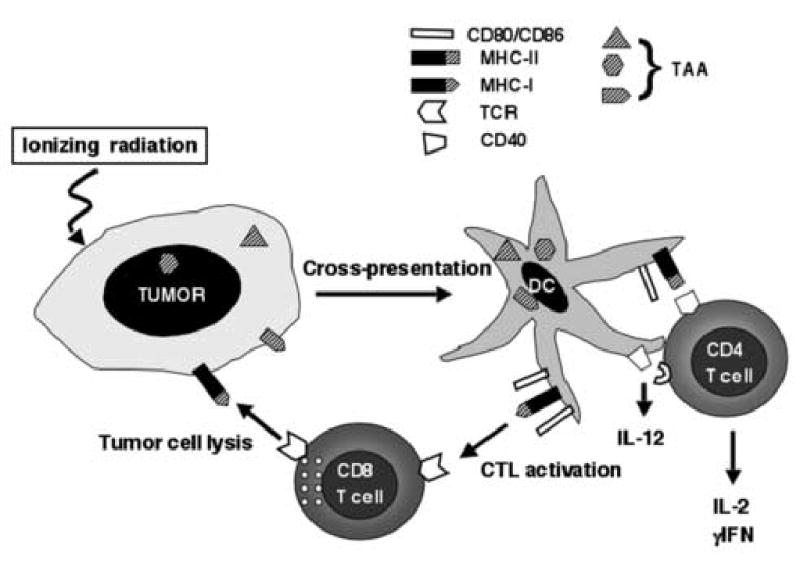Figure 1. A model for the role of ionizing radiation in promoting cross-presentation of TAA and activation of anti-tumor T cells.

It is well-established that dendritic cells (DC) can efficiently uptake tumor associated antigens (TAA) from apoptotic and necrotic tumor cells and present them to both CD4+ and CD8+ cytolytic T cells (CTL), a process termed cross-presentation. By killing tumor cells ionizing radiation can promote this process. In the presence of adequate “danger signals” that induce DC maturation and up-regulation of co-stimulatory molecules CD80 and CD86, tumor-specific T cells are activated to produce pro-inflammatory cytokines and become effectors capable of killing the tumor cells. Recognition and killing of tumor cells by CTL may be further enhanced by the radiation-induced up-regulation of Fas and/or MHC I molecules on the tumor cells.
